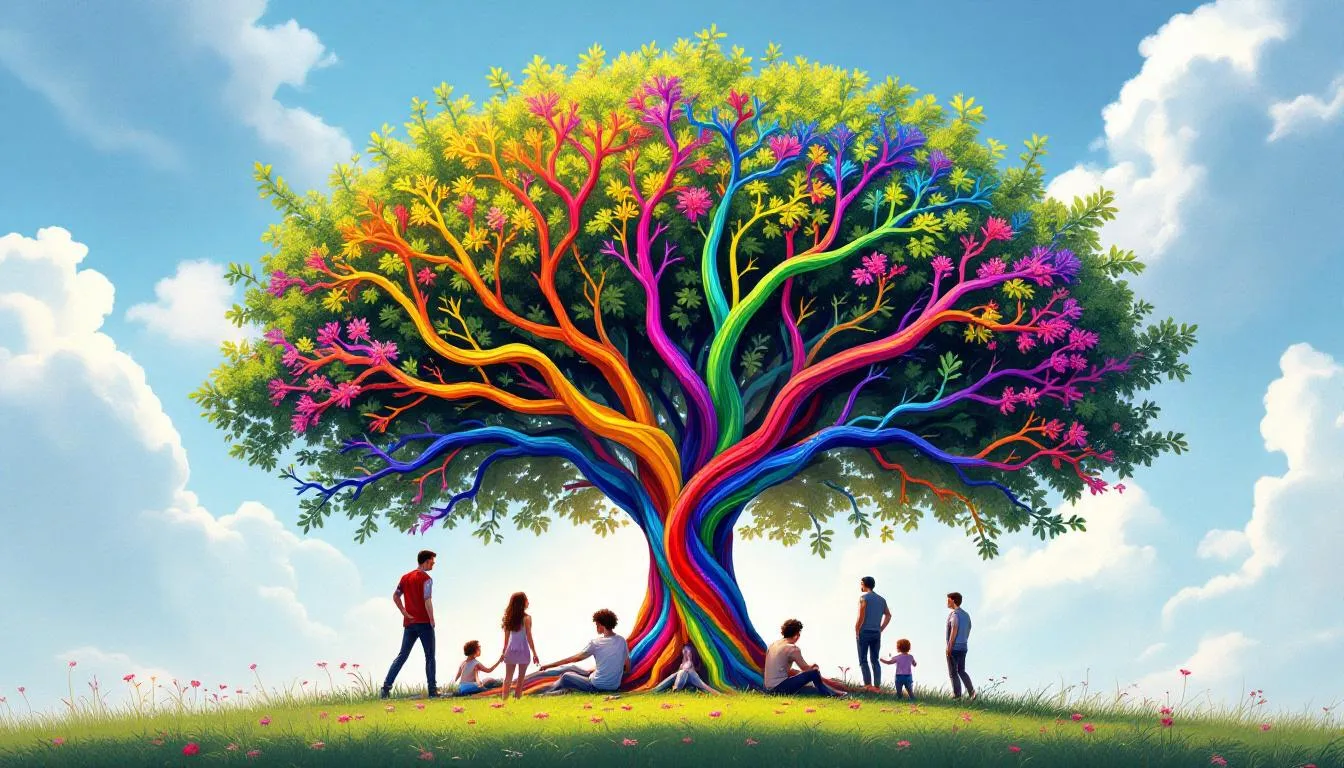Table of Contents
Introduction
Kindness is like a seed planted in the fertile grounds of childhood, growing into something beautiful and strong. I remember a neighbor who always waved and smiled at us kids as we played outside. Her simple gestures made the neighborhood feel like a big, welcoming family. Emotional connections formed through these small acts of kindness lay the foundation for a child’s sense of belonging and self-worth. A story about a nanny illustrates this magical transformation perfectly.
The Heartwarming Story of a Nanny
Meet the Thompsons, a bustling family with two spirited children, Ethan and Lily. Their nanny, Maria, was a gentle soul in her late fifties with a knack for storytelling and a heart full of compassion. She became an integral part of the family, blending seamlessly into their daily chaos with her soothing presence.
Maria had an extraordinary ability to notice the little things. One chilly afternoon, she observed that Ethan seemed unusually quiet, his typical spark dimmed. Rather than dismiss it as just another mood swing, she took a moment after school to sit with him over a warm cup of cocoa. In her patient and gentle way, she asked about his day. Ethan hesitated at first but slowly opened up about his struggles with math at school and feeling left out because he couldn’t keep up with his classmates.
Maria’s response was simple yet profound. She began creating fun math games they played together, transforming a source of anxiety into a shared adventure. Her encouragement and playful approach not only improved Ethan’s math skills but also boosted his confidence, making him feel valued and understood.
This small act of kindness, a seemingly ordinary gesture of attention and care, had a remarkable impact. Ethan began to thrive, feeling more confident and eager to participate in class. The ripple effect of Maria’s kindness didn’t stop there, inspiring those around her to embrace the power of small, thoughtful gestures.
The Impact of Small Acts of Kindness
Small acts of kindness open a world of emotional benefits for children, transforming their self-esteem and emotional intelligence. When a child receives kindness, it isn’t just a fleeting moment of joy—it’s a building block for their emotional foundation. I remember when my own daughter was having a tough time adjusting to a new school. One morning, a classmate shared a simple smile and offered to sit with her at lunch. That small gesture made her feel welcomed and valued, turning a potentially overwhelming situation into a more comfortable experience.
Kindness helps children build trust and security. It sends a clear message: “You matter, and you are safe here.” For instance, when Maria sat down with Ethan, she showed him that his feelings were important and valid. This builds a sense of trust, letting children know they have a secure base to explore their world. It’s like giving them invisible armor to face challenges, knowing someone is in their corner.
Moreover, these small gestures encourage empathy and compassion. By witnessing acts of kindness, children learn to recognize and respond to others’ needs. They begin to see the world from different perspectives and realize their actions can have a positive impact. It’s like planting seeds of empathy in their hearts, which can grow into a forest of compassion as they mature.
As these seeds of kindness take root, they set off a chain reaction, influencing not only the children who receive them but also the wider community. Understanding how these small acts ripple outward, touching even those not directly involved, is essential.
Understanding the Ripple Effect
Imagine a pebble tossed into a pond. The ripples spread out, touching everything in their path, much like how small acts of kindness influence families and communities. When Maria helped Ethan, she wasn’t just aiding one child; she was setting off a chain reaction. Ethan’s newfound confidence and happiness began to affect his family. His parents noticed he was more engaged and joyful, bringing a sense of peace to their home.
I’ve witnessed this ripple effect firsthand. When my daughter was welcomed by her classmate, it wasn’t just her spirits that lifted. Her happiness was infectious, making our home a brighter place. Her newfound friend felt empowered too, realizing the impact of her kindness, which encouraged her to extend similar gestures to others.
These acts of kindness can even reach beyond immediate circles. I recall a community initiative where neighbors helped an elderly resident with her garden. This simple act of kindness led to a monthly community gardening club, which not only beautified the neighborhood but also fostered a deeper sense of community. People who barely exchanged words became friends, all because of one small gesture.
As we ponder these ripples, it becomes evident that incorporating kindness into daily life can create a world of difference. These gentle waves of goodwill are within everyone’s reach, holding the power to transform lives in ways we might never have imagined.
Incorporating Kindness in Daily Life
Incorporating kindness into our daily lives is like adding sunshine to a garden—it helps everything grow and flourish. Small, thoughtful actions can have a profound effect, like when I started leaving little notes in my kids’ lunchboxes. They were simple messages: “You’ve got this!” or “I’m proud of you!” But the smiles on their faces when they came home spoke volumes. It turned their school day into a treasure hunt of love and support.
We can teach our children to practice kindness by modeling it ourselves. One of my favorite family traditions is our ‘Kindness Jar’. Each time someone in the family notices a kind act, they write it down and add it to the jar. At the end of the month, we read all the notes together. It’s a wonderful way to celebrate kindness and make it a regular part of our lives. Children learn that small gestures, like helping a friend pick up dropped books or sharing a toy, can make a big difference.
Encouraging kids to be kind doesn’t just stop at home. Schools and community groups can create programs like ‘Kindness Clubs’ or ‘Buddy Systems’ where kids are paired up to look out for one another. These initiatives empower children to take charge of their environment, fostering a sense of responsibility and community.
By embedding kindness into the fabric of daily life, we set the stage for a more compassionate world. This journey of kindness is not just about individual actions; it’s about nurturing a culture that values empathy and understanding.
Conclusion
Reflecting on the story of Maria, Ethan, and the ripple effects of kindness, we see how simple gestures can profoundly change lives. Maria’s intuitive understanding and compassionate response to Ethan’s struggles turned his world around, illustrating the power of paying attention and offering support. Her actions not only helped Ethan academically but also enriched his emotional well-being, setting off positive ripples throughout his family and beyond.
These stories remind us that kindness doesn’t require grand gestures. It’s the small, everyday actions that can create the most significant impact. Whether it’s sharing a smile, offering a helping hand, or listening attentively, these acts are within everyone’s reach. They remind us that each of us has the potential to be someone’s Maria—the catalyst for positive change in a child’s life.
As I look around my own life, I’m reminded of how impactful these small acts can be. Whether leaving a note in a lunchbox or joining a community initiative, these actions have the power to nurture and uplift those around us. It’s heartening to witness how kindness can transform not just individuals but entire communities, fostering a sense of belonging and empathy. Creating magical, memorable, and uniquely theirs experiences for children, like those offered by KidTeller, can also be a wonderful way to reinforce their sense of self-worth and belonging. Now, imagine the possibilities if we all made a conscious effort to incorporate kindness into our daily routines. What kind of world could we create? It’s an exciting thought, inviting us to take that first step and make kindness a habit.
Call to Action
Imagine the world we could create if each of us committed to spreading kindness daily. I invite you to share your stories of small acts that made a difference in your life or others’. Let’s inspire one another! As a challenge, try performing one kind act every day—be it a compliment, a helping hand, or just a moment of listening. These small gestures can build a tapestry of compassion, transforming lives in ways we can only begin to imagine. Together, let’s plant seeds of kindness, nurturing a future filled with empathy and understanding.







